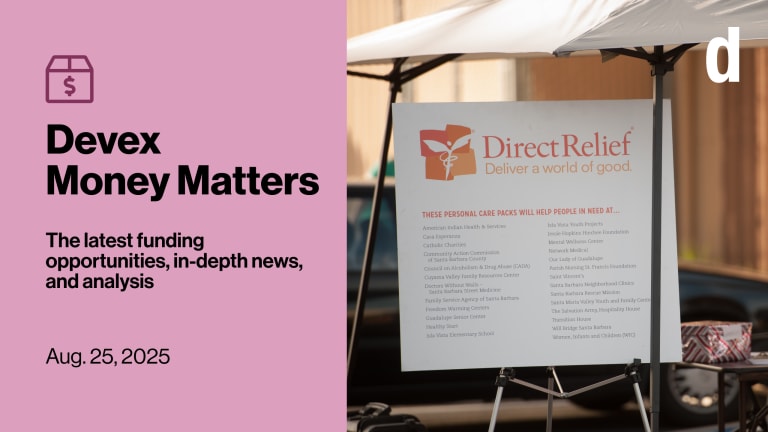
Anyone who has ever run a nonprofit or contributed to one would rightly be confused by the recent news coverage of the Clinton Foundation. For weeks, one of the most respected nonprofit organizations in the world has been attacked for its broad base of partners and supporters, with a focus on donors from abroad.
Diversified funding, however, allows for programs to be scaled and sustained. And support from international partners is critical for any organization, nonprofit or otherwise, in engaging the base of support needed to implement effective programs designed to improve the lives of our world’s poorest and most vulnerable populations.
All nonprofits need money to carry out their mission. So do all businesses and governments. That’s not new, and it’s certainly not news to most. And it’s as much a reality for the smaller community and faith-based nonprofits as it is for the Clinton Foundation.
Some nonprofits are fortunate to be largely self-funded. Others benefit from the generosity of others — socially conscious individuals, businesses and governments the world over. Nonprofits in the United States are also increasing partnering with the private sector to creatively empower vulnerable and poor communities abroad.
Either way, the money is necessary. Every year, the Hudson Institute’s “Index of Global Philanthropy and Remittances” show how billions of dollars from around the world are dedicated to improve human well-being. Diversified funding allows nonprofits to scale and sustain vital global aid and development initiatives. This is a good thing.
Even beyond financial considerations, no one entity — not individuals, organizations nor governments — can develop these programs alone. They don’t have the capacity or expertise to try. Many U.S. nonprofits today work extensively with other local nongovernmental organizations and community-based groups. Working with a broad base of international supporters not only helps bring diverse perspectives to this work, but it also helps nonprofits ensure they have the needed support and buy-in for programs to succeed.
For example, the Clinton Development Initiative’s Anchor Farm Project is empowering more than 85,000 smallholder farmers in Malawi, Rwanda and Tanzania by helping them increase their yields, lower their costs, obtain higher quality inputs and transport their crops to market. The farmers have multiplied their incomes and are opening up new opportunities for their families — including, in many cases, the ability to afford health care and education. And when you give people the opportunity to take control of their own destinies, the possibilities for improvement are limitless.
Along with seeking a broad and diverse base of support for programmatic work, to be successful in today’s interconnected world, U.S. nonprofits today must also be as transparent as possible in their work. The Clinton Foundation has recently committed to increase the frequency of disclosure of its donors and restrict funding from foreign governments to support its climate and development initiatives, as well as its enterprise program.
In fact, the nonprofit sector overall has taken major steps over the past decade to increase transparency. The International Aid Transparency Initiative, to which InterAction and several of its members adhere, is working to make information about global development spending easier to access, use and understand. The number of nonprofits that publish to IATI is still far too small, but the progress that has been made since the initiative first started in 2008 is remarkable.
New information and communication technologies have brought our world closer together. We can not only see problems and needs in communities far from our own, but individuals can now also reach out and help others in need. An executive in Silicon Valley, Paris or Buenos Aries can support efforts to bring food and medical assistance to populations in Syria or elsewhere abroad with the click of a mouse. That’s something to be praised.
Working together we can save more lives, reduce hunger and tap the human desire to better themselves and their families. This is what global philanthropy is about. A desire to save lives does not imply a hidden agenda. To believe that is to believe that humans no longer have the capacity to be considerate, moral and good.
The Clinton Foundation is noteworthy, for sure, but not for the reason recent new coverage implies. Its name may make it extraordinary in its ability to fundraise, but its belief that a broad and diverse base of supporter is both healthy and necessary for its success is quite ordinary. And that’s something we should all celebrate.
Join the Devex community and access more in-depth analysis, breaking news and business advice — and a host of other services — on international development, humanitarian aid and global health.








